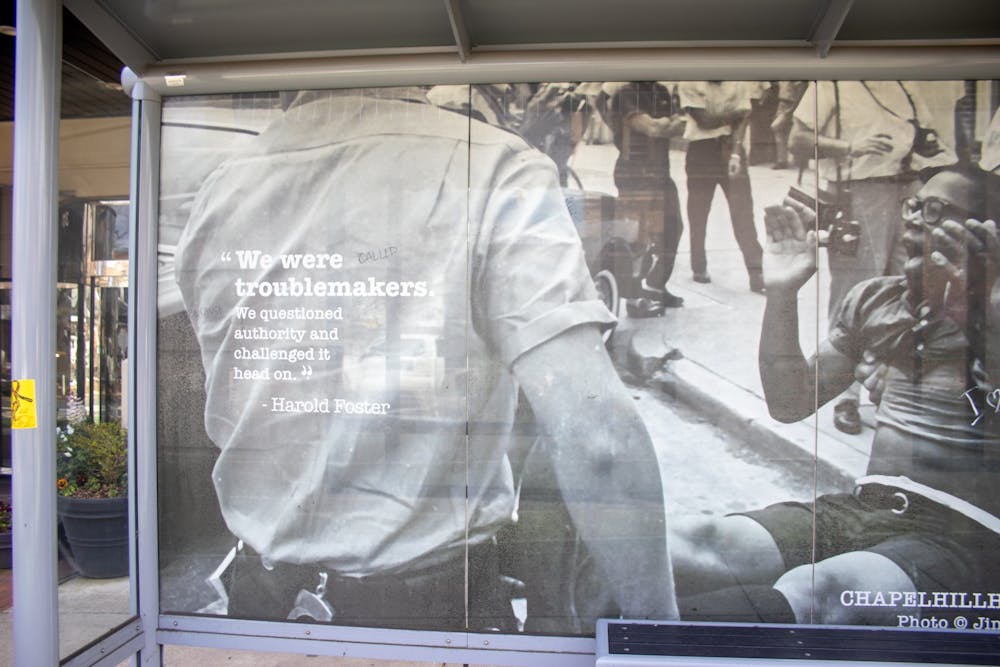To commemorate Black History Month, the Chapel Hill Public Library recently highlighted three bus shelters in Chapel Hill with art that depicts important moments in the Civil Rights Movement that took place in Chapel Hill.
The shelters' art features photos of a group of civil rights activists on the first freedom ride as well as art from Franklin Street civil rights protests.
The Art + Transit program, a collaboration between Chapel Hill Transit and Community Arts & Culture, launched the initiative to add art to the shelters.
Melissa Bartoletta, the marketing and communications coordinator for Community Arts & Culture, said the program brings new perspectives to the forefront and challenges people's ways of thinking through public artwork exhibitions.
“We work together with Transit, a department of the Town of Chapel Hill, to bring more art to the daily commute,” she said.
Molly Luby, the community history coordinator for the Chapel Hill Public Library, said the bus shelter designs were prompted by the Historic Civil Rights Commemorations Task Force, which sought to amplify Black experiences during the local Civil Rights Movement.
“We wanted to do that in ways that honored people who are still living and do it in a way that was more accessible to young people as well,” she said.
One of the shelters located at the Rosemary Street and Columbia Street Parking Lot, which was installed last year, is inspired by the Journey of Reconciliation.
On April 9, 1947, a group of eight white men and eight Black men embarked on an interstate bus trip through the Upper South. They stopped in Durham, Chapel Hill and other locations.



